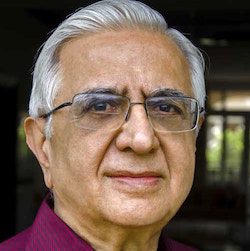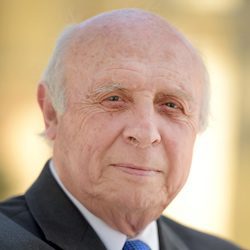Event summary
Diplomats and other professionals recently joined the E-diplomacy panel to discuss Diplomatic Reporting in the Internet Era after WikiLeaks.
The discussion, co-organised by DiploFoundation and the Geneva Centre for Security Policy, took place on 9 February in Geneva and was simultaneously broadcast online. A number of Diplo students, who were in Malta to attend a 10-day workshop as part of their PGD/MA programme, also followed the discussion.
The E-diplomacy panel – Ambassador Victor Camilleri, Malta's Permanent Representative to the UN in Geneva and DiploFoundation board president, Ambassador Kishan Rana, former Indian diplomat and DiploFoundation Senior Fellow, and Mr Philippe Mottaz, from World Radio Switzerland – was moderated by Dr Jovan Kurbalija, DiploFoundation director, and Mr Marc Finaud, Special Advisor to the Director at GCSP.
The E-diplomacy panel triggered a series of reflections. Please consult Ambassador Victor Camilleri’s background paper, Aldo Matteucci’s proposal on How to use Wikis for Diplomatic Reporting, Ambassador Kishan Rana’s background material on Feedback in Diplomatic Reporting, and Ambassador Nabil Fahmy’s reflections on Diplomatic Reporting and Media Coverage of Events.
Background: Diplomatic Reporting
Information is the lifeblood of the diplomatic services with diplomats, like veins and arteries, reporting from their posts back to their home countries. These diplomatic reports, or cables, as they’re more commonly known, keep information flowing; they help co-ordinate activities and prepare the groundwork for decisions.
Since the ancient Egyptian Tal-Amarna diplomacy right up until the present day, diplomatic reports have been at the heart of diplomacy. They very often determine the internal chemistry of diplomatic services. Diplomats try to establish their positions and gain peer-recognition through the quality of their reports.
While reporting remains an intellectual activity requiring good judgment, good cognitive skills, and a good writing style, it, too, has been affected by the Internet. What should be reported? How should diplomats integrate into their cables what has already been published by journalists, bloggers, and other providers of information? It is enough merely to provide a link and comment on someone else’s account of the situation? How will WikiLeaks affect diplomatic reporting? With so much information available, how can the key points be distilled into concise reports? These and other questions will be answered during the e-diplomacy panel.
After the deluge: WikiLeaks and Diplomatic Reporting
Now that the WikiLeaks hype has settled, it is a good time to look objectively at its impact and consider what we can learn. The exposure of US diplomatic cables has revealed a highly professional diplomatic service.
American diplomats write good policy analysis, clearly distinguishing facts and judgments. The reports are concise, and well-written with good humour. The early criticism that the cables covered too many ‘trivial’ matters is not valid: these matters reflect reality in many countries. A description of the palace of one of Ben Ali’s relatives (with tigers as pets) is more powerful than a statistical analysis showing the Gini-index of Tunis society.
A collateral ‘advantage’ of Cablegate is that the world stands reassured that one of the main global powers has a highly professional and reliable diplomatic service. One can challenge concrete foreign policy decisions, but it is clear that American diplomacy is based on informed and rational decision-making. In times of crisis, when issues of trust in official structures abound, this can help.
Event description
Venue:
- GCSP (2nd Floor, WMO/OMM Building, Avenue de la Paix 7 Bis, Geneva;
- Online (if you would like to join us online, please register here)
Panellists:
- Ambassador Victor Camilleri, Permanent Representative of Malta to the United Nations in Geneva;
- Ambassador Kishan Rana, former Indian diplomat and Professor Emeritus at DiploFoundation; online participation from Malta;
- Mr Philippe Mottaz, Director, World Radio Switzerland.
Moderators:
Dr Jovan Kurbalija, DiploFoundation, and Mr Marc Finaud, GCSP







